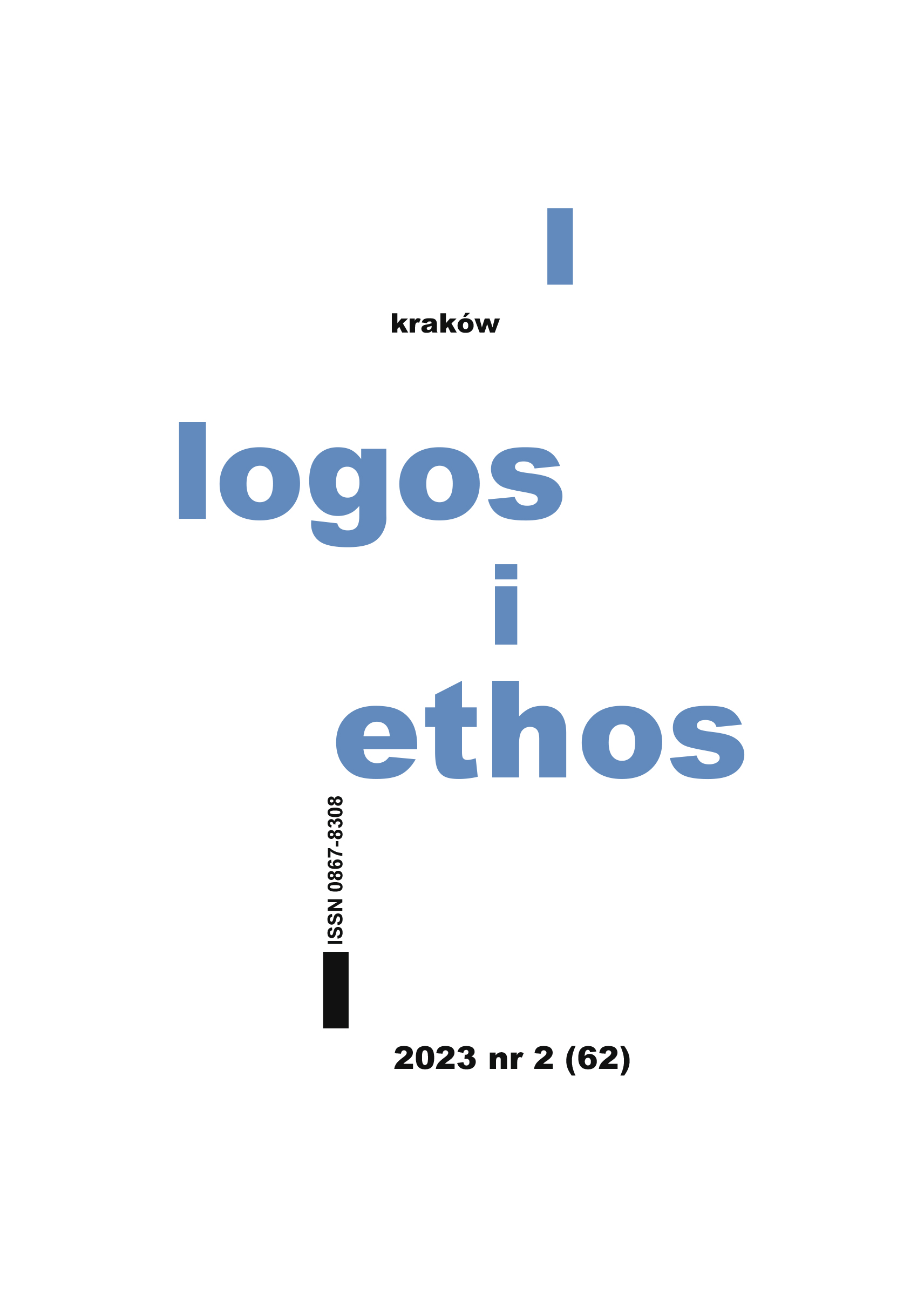Plato’s Theaetetus end logos of the Digital Humanities
DOI:
https://doi.org/10.15633/lie.62206Keywords:
Plato, Theaetetus, Logos, Phenomenology, Digital HumanitiesAbstract
The specifics of the humanities are the study of the human and its offspring, already recalled by Socrates in the “Theaetetus”. The dialogue marks a substantial shift in Plato — the discovery to be attributed to Wincenty Lutosławski, the author of the chronology of Plato’s works — that is, from pre-existent and transcendental ideas to the categories of reason, from philosophy as the “love of wisdom” to the “love of knowledge”. Thus, contrary to the widely held view of the so-called lack of the definition of knowledge in the “Theaetetus”, I argue that the quest for knowledge refers to the logic of thinking — the theme related to Charles S. Peirce’s logic of discovery and still distinct from “technology” — and provides the constitution of the humanities of the information and communication age as the digital humanities.
References
Brace K. S., Rudell R. L., Bryant R. E., Efficient implementation of a BDD package, 27th ACM/IEEE Design Automation Conference, 1990, p. 40–45; https://doi.org/10.1109/DAC.1990.114826.
Bryant R. E., Graph-Based Algorithms for Boolean Function Manipulation, “IEEE Transactions on Computers” C-35 (August 1986) issue 8, p. 677–691; https://doi.org/10.1109/TC.1986.1676819.
Burnet J., Early Greek Philosophy, London 1945.
Burnet J., The Socratic Doctrine of the Soul, London 1916.
Carr N., Is Google Making Us Stupid? What the Internet is doing to our brains, The Atlantis 2008.
Fisch M., Turquette A., Peirce’s Triadic Logic, “Transactions of the Charles S. Peirce Society” 2 (1966) no. 2, p. 71–85.
Janik P., Weryfikacja równoważności funkcjonalnej opisów układów cyfrowych, University of Science and Technology, Wrocław 1992, M. S. Thesis.
Janik P., The Matrix, or when the natural world is scary, in: Intentionnalite as idee: Phenomenon between efficacy and analogy, eds. P. Janik, C. Canullo, Kraków 2021, p. 163–179; https://doi.org/10.12797/9788381385978.09.
Kordos M., Wykłady z historii matematyki, Warszawa 2005.
Lutosławski W., The Origin and Growth of Plato’s Logic: With an Account of Plato’s Style and of the Chronology of his Writings, Longmans 1897.
Łukasiewicz D., On Jan Łukasiewicz’s many-valued logic and his criticism of determinism, “Philosophia Scientiæ” 15 (2011) 2, p. 7–20; https://doi.org/10.4000/philosophiascientiae.650.
Łukasiewicz J., Aristotle’s Syllogistic from the Standpoint of Modern Formal Logic, Dublin 1957.
Ofman S., Comprendre Les Mathématiques Pour Comprendre Platon — Théétète (147d–148b), “Lato Sensu. Revue de la Société de philosophie des sciences” 1 (2014) no. 1, p. 71–80.
O’Hara D., The slow percolation of forms: Charles Peirce’s writings on Plato, Ph.D. dissertation, https://etda.libraries.psu.edu/catalog/6652 (01.12.2022).
Ong W., Language as Hermeneutic. A Primer on the Word and Digitization, Ithaca–London 2017.
Patočka J., The Spiritual Person and the Intellectual, in: Living in Problematicity (Svazek). Kindle Edition.
Patočka J., Plato and Europe, Stanford (CA) 2002.
Peirce Ch. S., How to make our ideas clear, “Popular Science Monthly” 12 (January 1878), p. 286–302.
Peirce Ch. S., The Logic of Relatives, in: Collected Papers of Charles Sanders Peirce, t. 3–4, eds. Ch. Hartshorne, P. Weiss, Harward University Press, Cambridge, Mass. 1933.
Plato, Phaedrus, in: Plato, Complete Works, ed. J. M. Cooper, Indianapolis–Cambridge 1997, p. 506–556.
Plato, Theaetetus, in: Plato, Complete Works, ed. J. M. Cooper, Indianapolis–Cambridge 1997, p. 157–234.
Shin Sun-Joo, Peirce’s Deductive Logic, The Stanford Encyclopedia of Philosophy (Summer 2022 Edition), ed. E. N. Zalta; https://plato.stanford.edu/archives/sum2022/entries/peirce-logic/.
Downloads
Published
Issue
Section
License

This work is licensed under a Creative Commons Attribution 4.0 International License.
Authors who publish with this journal agree to the following terms:
- Authors retain the copyright and full publishing rights without restrictions, and grant the journal right of first publication with the work simultaneously licensed under a Creative Commons Attribution 4.0 International License that allows others to share the work with an acknowledgement of the work's authorship and initial publication in this journal.
- Authors are able to enter into separate, additional contractual arrangements for the non-exclusive distribution of the journal's published version of the work (e.g., post it to an institutional repository or publish it in a book), with an acknowledgement of its initial publication in this journal.
- Authors are permitted and encouraged to post their work online (e.g., in institutional repositories or on their website) prior to and during the submission process, as it can lead to productive exchanges, as well as earlier and greater citation of published work (See The Effect of Open Access).

